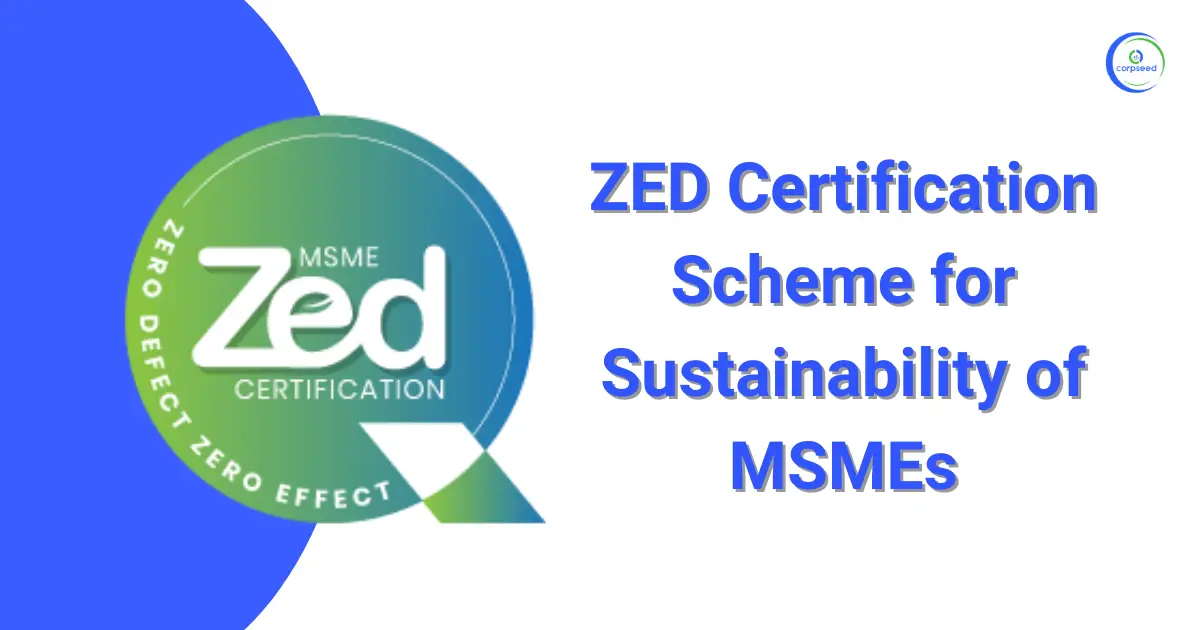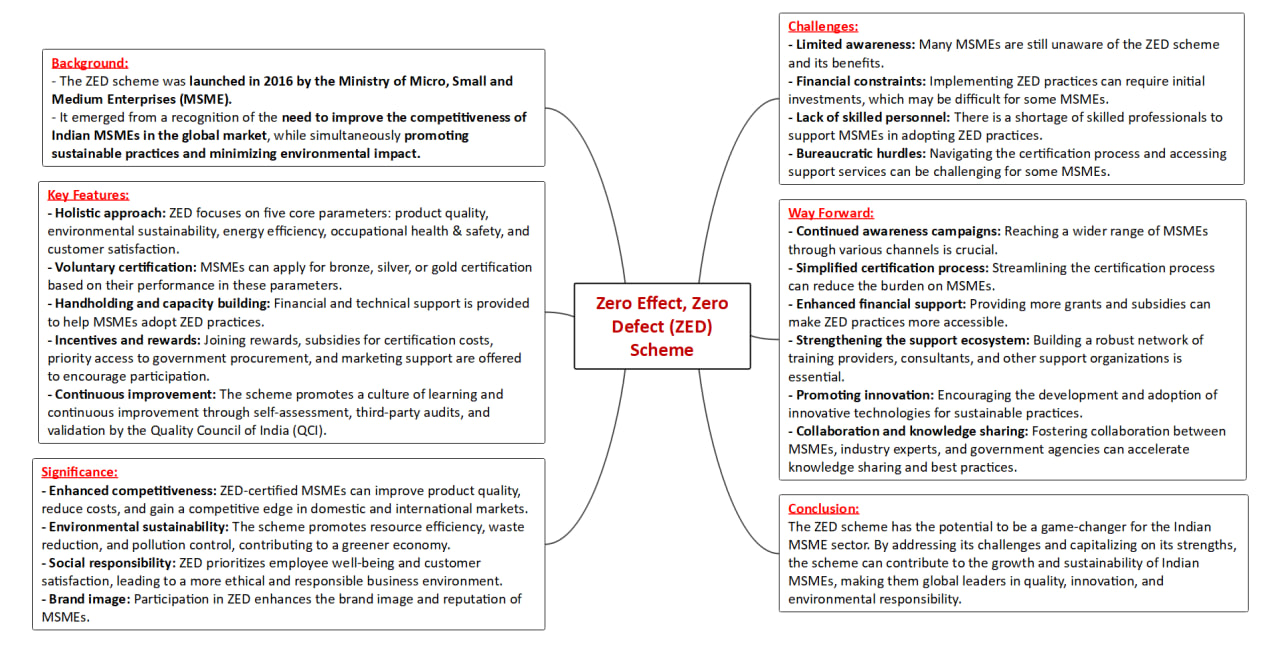Description

Copyright infringement not intended
Picture Courtesy: www.corpseed.com
Context: The Zero Effect, Zero Defect scheme (ZED) by the MSME Ministry has achieved a significant milestone of certifying 1 lakh (100,000) Micro, Small, and Medium Enterprises (MSMEs) for environmentally conscious manufacturing practices.
Details
- The Zero Effect, Zero Defect scheme (ZED) was launched in October 2016 and revamped in April 2022, aims to encourage sustainable manufacturing and reduce environmental impact.
ZED Scheme Overview
Certification Levels
- The ZED scheme offers certification under three levels: Gold, Silver, and Bronze.
- Certification is based on 20 performance-based parameters, including quality management, timely delivery, process control, and waste management.
Financial Support
- MSMEs receive financial assistance for certification, with a subsidy of up to 75% of the total certification cost.
- The maximum subsidy ceiling is Rs 50,000, and additional support of up to Rs 2 lakh is provided for consultancy to achieve the next certification level.
- For technology upgradation, assistance of up to Rs 3 lakhs is offered for zero-effect solutions, pollution control measures, and cleaner technology.
Certification Fees
- MSMEs are charged a certification fee: Rs 10,000 for Bronze, Rs 40,000 for Silver, and Rs 90,000 for Gold.
- The scheme was made free for women-led MSMEs in December 2023, and the government guarantees 100% financial support for certification costs.
Certification Validity
- ZED certification is valid for three years.
- MSMEs must reapply for the certificate after the expiration of the validity period.

Target and Achievement
- The scheme surpassed its internal target of 50,000 certifications before January 26, achieving over 1 lakh certifications in 19 months.
- As of the latest data, 1,01,962 units received Bronze certification, 339 units received Silver certification, and 341 units received Gold certification.
Environmental Sustainability and Government's Goals
- Carbon Emission Reduction: The ZED scheme aligns with the government's plan to reduce India's CO2 emissions by 1 billion tons by 2030. The goal is to reduce carbon intensity below 45% by 2030 and achieve a Net-Zero emission target by 2070.
- Focus on Sustainable Practices: The ZED scheme encourages MSMEs to adopt sustainable manufacturing practices, contributing to environmental conservation.

Conclusion
- The ZED scheme's milestone of certifying 1 lakh MSMEs underscores its success in promoting environmentally conscious manufacturing practices. The financial support, certification levels, and alignment with the government's environmental goals make it a crucial initiative for fostering sustainability in the MSME sector. The scheme's success reflects the commitment of MSMEs towards adopting eco-friendly practices, contributing to a greener and more sustainable industrial landscape in India.
|
PRACTICE QUESTION
Q. How can local communities actively contribute to achieving sustainable development goals in their region, and what key initiatives or practices can be implemented to promote environmental conservation, social equity, and economic growth simultaneously?
|
https://t.me/+hJqMV1O0se03Njk9










